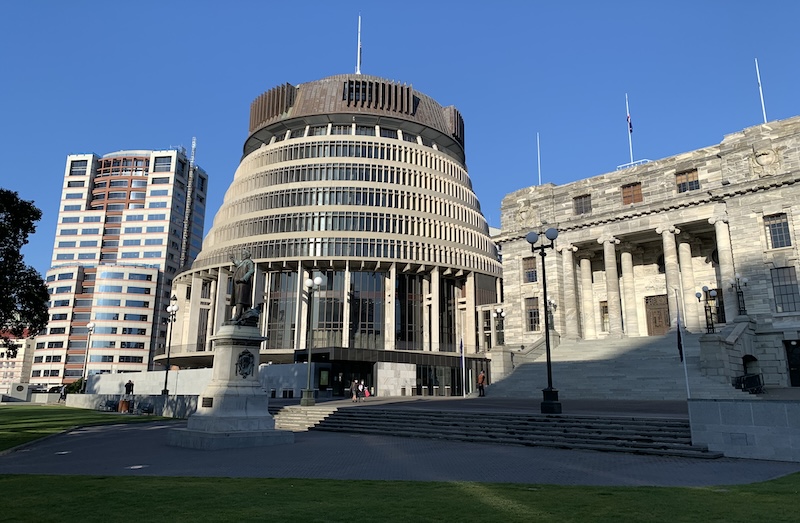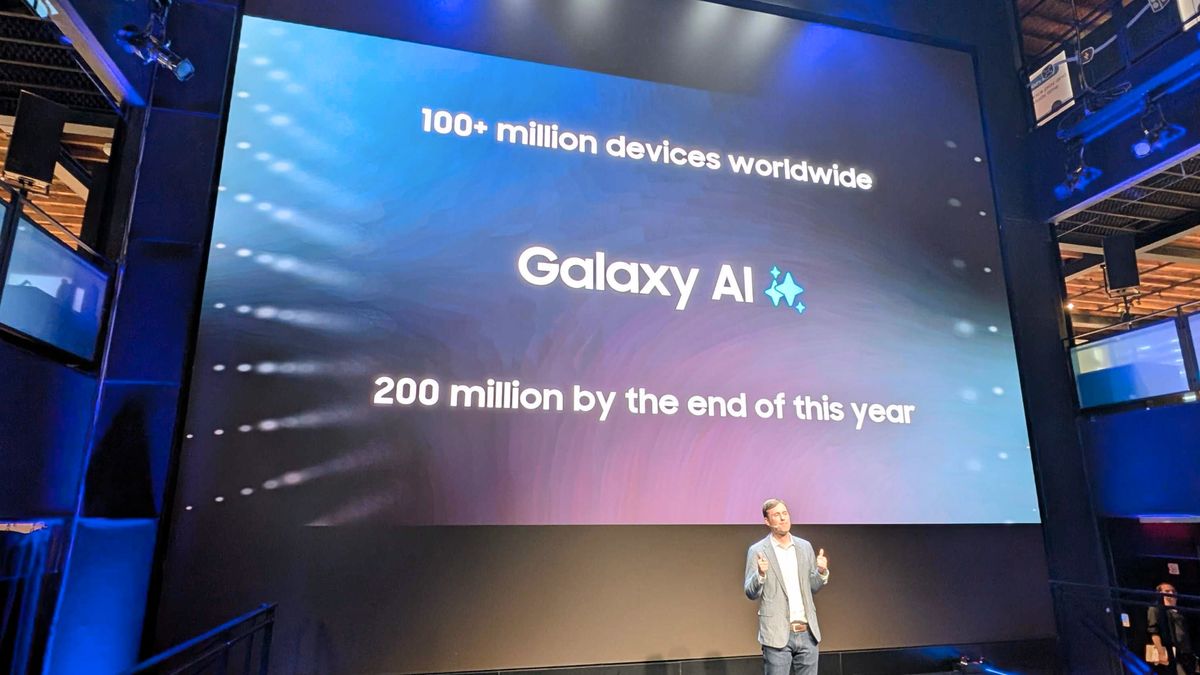Hayden Donnell singles out the people who did well and the ones who got massively owned in this weekend’s general election.
WINNERS
The National Party
The National Party won the largest share of the vote in the 2023 New Zealand General Election.
Winston Peters
Winston Peters won the Winston share of the Winston in the How Is This Still Happening.
Three thousand families with both parents or caregivers earning between $53,500 and $66,000 a year who have at least one child under 5 and spend $300 per week or more on childcare
If you’re part of the 0.18% of New Zealand who fits the description above, congratulations, it’s time to collect your $252-a-fortnight tax cut*.
*Full tax cuts only available from July 2024, terms and conditions apply.
Everyone involved in real estate
Beneficiaries (old)
People receiving the universal superannuation benefit will continue to have their income adjusted in line with wages. They’re also in line for a boost of around $13-a-fortnight under National’s tax plan. However, their fellow beneficiaries who are yet to turn 65 aren’t so lucky.
Chris Bishop
It’s taken three years, but Chris Bishop has finally recovered after experiencing the vision of hell from Event Horizon on the night of the 2020 election.
Chris Luxon
Chris Luxon’s election win contains echoes of the Australian ice skater Steven Bradbury, who claimed a Winter Olympics gold medal after all his opponents fell over just before the finish line.
National’s leader was boosted by Labour’s decision to offer insipid incrementalism to an electorate slavering for change. But like Bradbury, he had to keep his feet to win. There were wobbles. He couldn’t spell ‘cat’. He sweated through a barrage of questions from Jack Tame. He revealed National has uncovered a time portal to a ‘90s Foodtown in the basement of the Beehive. But even if he sometimes struggled under pressure, Luxon was usually able to repeat the words “rock solid” until journalists gave up and moved on to the next sword fight or dogged attempt to make the world’s worst coffee. He didn’t flame out. He kept his feet. A gold is a gold.
Craig Renney
The CTU kept its in-house economist chained to an iron abacus in a basement stats cave, churning out critiques of what were euphemistically described as National’s “heroic” numbers.
Renney alleged that National’s spending plans were underfunded by $3 to $5 billion. He found the party’s much-touted $252-a-fortnight tax cut would only benefit 3,000 families. He worked out how much raising the retirement age will cost younger and middle-aged people. He forlornly tugged at the binds holding him to the abacus until the loud speaker above his stretcher crackled to life to broadcast a stern reprimand from CTU president Richard Wagstaff.
At times during the campaign, it felt like Renney was the only person in Aotearoa allowed to do maths. He did more journalism than most journalists and more economic analysis than the entire Labour research unit combined. National MPs wrote tweet threads slagging him off. They put out PR releases accusing him of “gutter politics”. One thing they never did: prove him wrong.
A trio of economists from across the political spectrum
Three people who collectively became known as “economists from across the political spectrum” gave Craig Renney a brief break from his confinement in the CTU maths cave in September, taking it upon themselves to run the numbers on the revenue National projected it would take in from its foreign homebuyers tax. They found that rather than being – in Castalia’s words – “possible and plausible”, those projections were instead “fantastical and quite bullshit”. In their analysis, National’s tax plan went from “fully funded” to “about $530 million short”.
Amelia Wade and Jack Tame
The co-winners of the inaugural The Spinoff-Hayden Donnell Campaign Journalist of the Election award. The prize is a signed replica of the ‘8 inch squeaky pecker’ dog toy famously thrown at Steven Joyce below the Waitangi treaty grounds. Each recipient gets it for 1.5 years.
The Green Party
The Greens won three electorates and what may become their highest ever vote share by employing two clever political tricks:
- Offering to help people with their number one concern.
- Not screwing up constantly.
Few other parties managed to execute these complex strategic manoeuvres.
Te Pāti Māori
Te Pāti Māori won four of seven Māori seats by employing two clever political tricks:
- Offering to help people with their number one concern.
- Not screwing up constantly.
Few other parties managed to execute these complex strategic manoeuvres.
The rich-listers who donated millions of dollars to National and Act
Good stuff guys, you finally got a win in life.
Chaos
Our likely next government will make the recording sessions for Fleetwood Mac’s Rumours look like a wellness retreat. Winston Peters is about to go down in history as our first government minister who has publicly threatened to beat one of his colleagues to the point of hospitalisation.
Meanwhile, David Seymour will go down in history as the first government minister who has publicly said his colleague is an elderly crook who could be in adult diapers pretty soon.
They’re not the only ones in our new government who despise their likely coalition partners.
Peters once said National is full of sex maniacs. In reply, National’s Helensville MP Chris Penk tweeted: “Winston Peters is the real s*x maniac because he can f*** a whole country at once”.
When Simon Bridges ruled Peters out as a potential coalition partner back in 2020, National’s Chris Bishop tweeted: “Simon Bridges has ruled out Winston Peters because he doesn’t trust him and NZ First. Leadership.” Bishop has so far failed to condemn Chris Luxon’s lack of leadership. Perhaps it will come up in what will no doubt be a convivial first Cabinet meeting
LOSERS
Order
In the words of Sir John Key:
Imagine.
Linda the Laser Kiwi
In one night, Newshub’s augmented reality bird gave birth to Andrew Hoggard, Efeso Collins, and in a particularly harrowing delivery, both Winston Peters and Shane Jones at once. As I understand it, giving birth is hard at the best of times. Having to do it on live TV seems cruel.
Linda the Laser Kiwi’s victims
When Linda the Laser Kiwi wasn’t laying eggs, she was banishing politicians to the shadow realm to be tortured for eternity.
The Green Party
The Green Party will likely win its highest ever share of the party vote. In the first 27 years of MMP, it won two electorate races. It won three just last night. The Party has reason to party.
But those achievements can feel a little bit hollow when the Greens’ largest, most talented caucus is set to spend the foreseeable future watching Chris Luxon trying to stop Winston Peters and David Seymour from disembowelling each other for long enough to pass some legislation.
Public servants
If foreign house buyers aren’t going to pay for our tax cuts, someone else is going to have to sacrifice to balance the books. Time for public sector workers like *checks notes* part-time RNZ producer Hayden Donnell to brush off their CVs.
Labour’s research team
Labour’s entire research strategy this election seemed to be to sit very quietly until Craig Renney dinged the bell next to his abacus to indicate he’s ready to release a new calculation.
The only spot of competence in the tide of ineffectuality came from New Lynn MP Deborah Russell’s team, who scoured Chris Luxon’s old high school yearbooks to uncover the damning fact that he is a champion debater.
Toni
The election may be out-of-reach, but Chris Hipkins’ secret partner Toni is winning the only race that matters in Stuff’s ‘most popular stories’ rankings.
BIG LOSERS
Beneficiaries (not old)
Until recently, Chris Luxon and a coterie of economists were lining up to tell the media we needed to lift unemployment to cool inflation. Now it’s time to tell the people who got laid off they’re lazy bludgers, restrict the increases to their benefits, and sanction them if they’re not sufficiently zealous in finding a job. However if too many people work, prices may spiral, and we’ll need to lift unemployment to cool inflation. Then we’ll tell those who got laid off they’re… And repeat.
Low-income workers
During the Covid-19 pandemic, bus drivers, cleaners, and hospitality workers were hailed as heroes for making sure society kept running while the rest of us stayed home to save lives. They proved the people making the least money are often those who actually keep the lights on.
As a thank you present for those efforts, the government plans to cancel Fair Pay Agreement negotiations which would have lifted their collective salaries. Let the race to the bottom resume.
Follow Gone By Lunchtime on Apple Podcasts, Spotify or wherever you listen to podcasts.
David Seymour
In the original Space Jam, aliens steal the skills of the then-NBA stars Larry Johnson, Mugsy Bogues and Charles Barkley in an effort to win a basketball game against the Looney Tunes. The theft renders the players useless, devoid of the talents that propelled them to success.
In losing all trace of the abilities they relied on to make their living, Johnson, Bogues and Barkley have a lot in common with Act leader David Seymour. For three years the Epsom MP was fêted by the media for shepherding his party from 1% in the polls to, at one point, just shy of 20%. He was praised for his political calculus, tenacity, quick-turnaround media strategy, and most of all, the way he controlled what everyone imagined would be kooks in his caucus.
Then the campaign began, and he didn’t do any of that stuff. Act failed to properly vet its candidates, and later found its list had been infiltrated at several levels by conspiracists, anti-vaxxers, and generally unpleasant people. Seymour followed those distractions by announcing “now isn’t the time for significant tax cuts”. Significant tax cuts are literally the point of Act. Somberly telling people things aren’t possible because of the fiscals and whatnot is the role of a major party. The minors are meant to live on the edge, free from the shackles of having to implement most of their agenda. Without his big tax cuts, Seymour was left touting a $1 billion imprisonment drive.
By the end of the campaign, Seymour had taken to wandering the streets, trying to find someone, anyone who’d been ram raided or robbed. In Christchurch he fronted a media conference next to someone holding a sign saying “David Seymour is a f****** idiot“. He wandered off into a market where he was harangued by a worker over his plans to implement punitive public sector cuts. It seemed everywhere he trudged, Winston Peters was there, a haunting grin glued to his face, cackling and reaching down to steal yet more Act votes.
Act spent nearly $5 million on its campaign. It was gifted a plane by a foreign billionaire. For all that, it grew its support by roughly 1%, The party that once dreamed of 20% ended up with nine.
Electorate polling
A poll of the Wellington Central race released by Newshub Nation in September showed the Greens’ Tamatha Paul in third place.
As things stand, Paul has a winning majority of more than 3,000 votes.
Being catastrophically wrong is almost mandatory for electorate polls. A survey of the Te Tai Hauāuru electorate on September 19 showed Labour’s Soraya Peke-Mason with a slim lead. She currently trails Te Pāti Māori’s Debbie Ngarewa-Packer by more than 6,000 votes. Another looking into the Te Tai Tonga electorate on September 26 had Rino Tirikatene leading the race to be local MP by 11%. He trails Tākuta Ferris by 1,400 votes. Back in 2020, polling ranked Chlöe Swarbrick a distant third in the Auckland Central race. She just secured her second term.
Recent history would suggest that you can better predict electorate races by taking the results of their polling and reversing them. In a tightening media market, news organisations might want to consider not wasting their money on any more of these unedifying mathematical spectacles.
GIGANTIC LOSERS
Chris Hipkins
Chris Hipkins ran a solid campaign. He was articulate in promoting Labour and ruthless in prosecuting the economic ineptitude of his opponents. While Chris Luxon was so wedded to his talking points that it often felt like he wasn’t speaking the same language, or sometimes even living in the same dimension as his interviewer, Hipkins stayed relentlessly on message without seeming like he’d departed from the topic at hand. Besides the first leaders debate on TVNZ 1, where he appeared to go into a fugue state for half-an-hour, he didn’t really put a foot wrong.
Unfortunately for Labour, those efforts were undermined by his decision to shoot himself in the electoral nuts twice before the campaign even began.
The first bullet struck on June 27, when Labour put an end to its petrol excise tax cut. For New Zealanders, a dollar on petrol is worth $42 on any other product. We regularly spend $5 on petrol queuing to save $2 on petrol. Spending three years so terrified of losing votes you’re reduced to a state of near legislative paralysis, then putting up petrol prices 30 cents three months before a general election defined by the rising cost of living is the political equivalent of breaking a juice fast by downing an entire barrel of lard. It would be inexplicable if it wasn’t for the fact that Labour’s only more defining quality than caution is its penchant for screwing up.
The next shot struck home on July 12, when Hipkins ruled out implementing a wealth or a capital gains tax at any point as prime minister. “With many Kiwi households struggling, now is simply not the time for a big shake-up of our tax system,” he said, adding: “New Zealanders I talk to want certainty and continuity right now, and that’s what I’m delivering with this policy.”
In other words, people are doing terribly, and they want to know it’s going to stay that way.
Hipkins’ “captain’s call” sealed off election opportunities for Labour. The New Zealand Herald’s Thomas Coughlan would later reveal the party had been planning to levy a wealth tax on assets over $5 million to pay for a $10,000 income tax-free threshold. That move would net four million people $1,050 a year, or $25 in petrol dollars. A poll last November showed 84.5% support for a tax-free threshold. A poll quizzing people on Labour’s aborted wealth tax showed 61% support.
Without real tax relief to offer people on lower incomes, Hipkins became a salesman with nothing to sell. He spent the whole campaign rightfully pointing out his rival’s product was shoddy, poorly designed, inadequate for the task at hand, and likely to hinder more than it helped. But at least the tax plan National strung together out of chicken wire and PVA glue was an attempt to blunt the impact of the spiralling costs that all people, in all demographics, had ranked as their number one concern. When it came time to present his alternative, Hipkins could only offer 45c off parsnips and some free dental for some people in three years’ time.
The objections are obvious: Labour has lost elections before with a capital gains tax as its headline policy; the Greens proposed a wealth tax and only won 40% of Labour’s vote. But the Greens used to poll less than a sixth of Labour’s vote, and the only thing harder than convincing the electorate to accept a wealth tax over the objections of money and capital is convincing them to accept a discount on yams as their sole relief from a crushing cost of surviving crisis.
If Labour went with what it saw as the safe route on tax, it took the opposite tack on co-governance. Race was shaping up as an election-defining issue in the early days of the campaign, with New Zealand First, Act, and National objecting to our half-hearted attempts to honour Te Tiriti. Hipkins opted to go on the attack, accusing his opponents of drumming up division for votes, and harassing Luxon on the issue in leaders’ debates. By the end of the campaign, co-governance was at most a neutral issue for Labour. As it turns out, you can win an inflammatory debate against vested interests if you have a righteous cause and a good case.
It makes you wonder what might have been if Hipkins had taken a similarly bold stand on tax justice. If he’s rueing the fact that he never got that opportunity, he only has himself to blame.
The New Zealand Labour party
Newshub political editor Jenna Lynch put it best when she asked: “What is the point of Labour?”.
Good question. That’s probably something the party should figure out as soon as possible if it wants the answer to be more than “losing general elections in the most pathetic way possible”.
The laws of time and space
Winston Peters has cheated political gravity, death, and a host of immutable laws on his way to (likely) holding the balance of power for a 472nd time. In his speech to supporters on Saturday night, he admitted he’s now entering his 60th decade. It’s time to rewrite the laws of physics to replace ‘entropy’ with ‘Winston Peters casting the deciding vote in the New Zealand election’.





















Discussion about this post